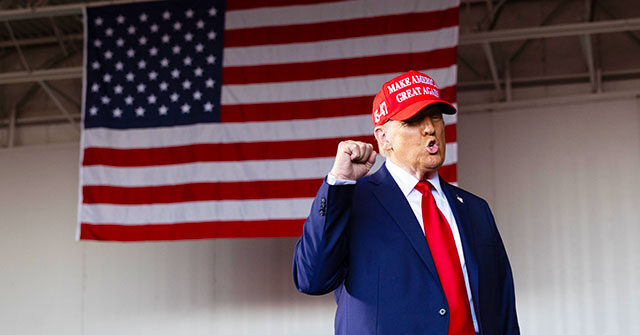Recently, former President Donald Trump has publicly accused Google of having a biased and “rigged” approach to its search results, particularly in relation to positive coverage of him. During a recent meeting with the Economic Club of Chicago, Trump expressed frustration over Google’s failure to showcase the positive stories surrounding his persona and achievements. He claimed, “I called the head of Google the other day and I said, ‘I’m getting a lot of good stories lately, but you don’t find them in Google,” attributing this presumed bias to a broader notion of systemic rigging, which he sees as reflective of issues within the government itself. This assertion fits within a pattern of his previous comments regarding perceived media censorship, notably incidents where both Google and Facebook allegedly obscured significant information tied to his campaign.
Trump’s displeasure was particularly vocalized following events such as the suppression of images relating to an assassination attempt aimed at him, which he alleges were censored by social media platforms. In a statement on his Truth Social account, he emphasized how both Google and Facebook have committed what he perceived as a serious wrongdoing by limiting the visibility of these critical images and information. His rhetoric showcased a continuation of his claims that such actions amount to attempts to distort the political landscape, casting these moves as threats to electoral integrity. In true Trump fashion, he rallied his supporters to confront these tech giants directly, urging them to be vigilant and assertive about what he calls the rigging of the electoral process leading into the upcoming presidential race.
Interestingly, while Trump has shown a proclivity for aggressive action against tech companies, his recent comments reflect a nuanced turn regarding the potential breakup of Google. During his presidency, Trump’s administration was proactive in initiating a lawsuit against Google, accusing it of maintaining an illegal monopoly and utilizing anticompetitive tactics to dominate the online search market. At that time, the Justice Department’s lawsuit argued that Google had engaged in unfair practices, including financial agreements with other tech companies to secure its position as the default search engine on numerous devices. A ruling acknowledging Google’s monopoly power had previously opened the door for the possibility of its breakup, signaling a firm stance from the government against corporate monopolization.
However, Trump appeared more cautious during his recent discussions, questioning whether breaking up such a substantial entity like Google could inadvertently harm the company and its impact. Despite his underlying disdain for Google, he suggested alternatives that might ensure a more equitable operational landscape without requiring a total dismantling of the corporation. This marked a notable shift from his previously straightforward approach to potentially conquering what he perceived as monopolistic practices in Silicon Valley, hinting that he might adopt a more balanced strategy if he were to regain the presidency.
The recalibration in Trump’s perspective on how to deal with Google seems to stem from larger geopolitical concerns, particularly the intensifying competition between the United States and China in areas of technological advancement. In asserting that “China is afraid of Google,” Trump highlighted his belief that Google’s dominance plays a crucial role in maintaining America’s competitive edge in global tech developments, especially amidst rising tensions between the two nations. This context suggests that any regulatory considerations concerning Google may not only focus on domestic implications but also reflect the strategic importance of maintaining technological supremacy over rival nations in key industries such as artificial intelligence.
In summary, Trump’s discourse surrounding Google encapsulates a blend of personal grievances, political strategy, and broader global dynamics. While he remains outwardly critical of Google and invokes strong sentiments of bias in search results, his apparent shift away from advocating for a corporate breakup signals a change in his strategic approach. By considering alternative measures to ensure fair practices without dismantling the corporation, Trump appears to align his domestic policy stance with a wider recognition of external geopolitical factors, particularly the fierce competition with China. This evolving dialogue illustrates the intricate interplay between technology, governance, and international relations in shaping political narratives leading into the next presidential election.

